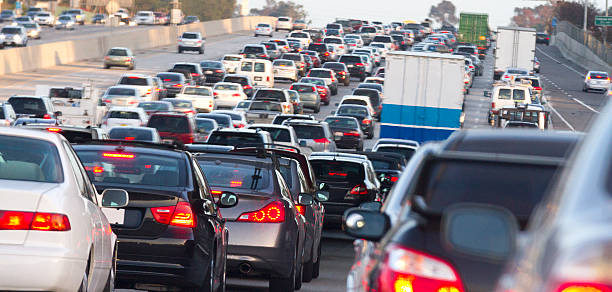Beijing/New York, October 16 – Infrastructure has become a major international issue as its components are responsible for greenhouses gas emissions and adaptation costs, facts that can help accelerate the implementation of the Paris climate agreement that will be discussed at the Glasgow climate conference.
Thousands of experts, activists and business leaders from over 100 countries took part in the virtual Second UN Global Sustainable Transport Conference (October 14-16) in Beijing, the UN said in a press release at the close of the conference. It said participants called for accelerating progress towards achieving sustainable transport that would result in major reductions in greenhouse gas emissions and in improving the lives of millions of people.
The transport conference was held before of the 2021 UN Climate Change Conference (COP26) taking place October 31-November 12 in Glasgow at which decision-makers will discuss ways to accelerate progress towards meeting the Paris Agreement and Sustainable Development Goals.
“Participants agreed that without a profound shift to sustainable mobility, achieving the goals of the Paris Climate Agreement and the Sustainable Development Goals — already off-track — would be impossible,” the press release said.
UN Secretary-General António Guterres said in a video message to the conference: “Covide-19 has pushed an estimated 120 million people into extreme poverty, 160 million into hunger, and set back education for around 100 million children. We are further from realizing the Sustainable Development Goals on climate, ocean, and biodiversity than we were when they were agreed six years ago.”
Guterres warned that the door on climate action was closing unless decarbonization of all means of transport is imposed in order to get to net-zero emissions by 2050 globally. He called also for phasing out the production of internal combustion engine vehicles by 2035 for leading manufacturing countries, and by 2040 for developing countries.
He called for zero emission ships to become the default choice, and commercially available for all by 2030 in order to achieve zero emissions in the shipping sector by 2050; and that companies start using sustainable aviation fuels now, in order to cut carbon emissions per passenger by 65 per cent by 2050.
“We have the opportunity now to capture the innovation and technology that can revolutionize transport,” said Conference Secretary-General Liu Zhenmin, UN Under-Secretary-General for Economic and Social Affairs. “But these new technologies have to work for everyone. We have the solutions, and now we need the global cooperation to ensure that sustainable transport will be the engine that powers our efforts to achieve the Sustainable Development Goals and the objectives of the Paris Agreement.”
The conference said progress made so far is insufficient and challenges remain to achieve the goal of keeping earth temperatures below 1.5 degrees Celsius as demanded by the Paris climate agreement.
The press release said remote rural communities and vulnerable groups in countries with special conditions “risk being left behind as the number of new and emerging transport-related technologies increase. More than $2 trillion of transport infrastructure investments will be needed each year until 2040 to fuel economic development. There is also a need for stronger policies on road safety measures and regulations on the import of new and used vehicles. “
A report prepared for the Beijing transport conference by the UN Department of Economic and Social Affairs (DESA) in close collaboration with 14 other UN agencies say key changes in transport would improve climate action.
The report said over 1 billion people worldwide still have no adequate access to all-weather roads, including some 450 million people in Africa. It said over 70 per cent of the total global rural population remain unconnected to transport infrastructure and systems, and car fuel emissions killed about 400,000 people.
“The lack of access to roads and transport contributes to deprivation in terms of access to timely health care, education, jobs and markets for agricultural produce,” the report said. “Rural isolation disproportionately harms the poor, older persons, persons with disabilities, children and women. Women and girls can face additional challenges when there are concerns about their physical safety.”
Oxford University, UN agencies: Radical changes needed in infrastructure design and management to achieve climate and development goals
Studies by experts from the UN Office for Project Services, the UN Environment Program and the University of Oxford have found that infrastructure is responsible for 79 per cent of all greenhouse gas emissions, and 88 per cent of all adaptation costs. A report issued by the experts called for radical changes are in infrastructure planning and management to achieve key climate and development targets.
“The central question is not whether we need infrastructure, but how it can be provided in ways that are sustainable, resilient and compatible with a net zero future,” Jim Hall, professor of Climate and Environmental Risk at the University of Oxford, said. “There is no simple answer to the question of how to provide climate-compatible infrastructure. It requires a myriad of choices, from the moment an infrastructure project is first conceived, to the end of its life when it is decommissioned or repurposed.”
Inger Andersen, Executive Director of UNEP, said, “As we seek to bridge the infrastructure gap and improve the quality of life of people everywhere, it is critical that we invest in sustainable infrastructure that adapts to future uncertain climate conditions; contributes to the decarbonization of the economy; protects biodiversity and minimizes pollution. Sustainable infrastructure is the only way we can ensure that people, nature and the environment thrive together.”
United Nations correspondent journalists – United Nations correspondent journalists – United Nations correspondent journalists
United Nations journalism articles – United Nations journalism articles – United Nations journalism articles

